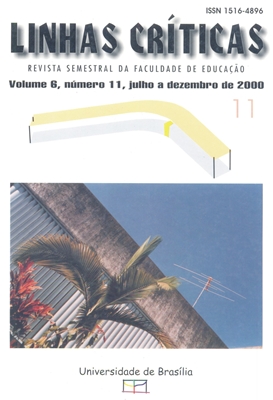The institutional research and brazilian higher education: a longitudinal case study of dropout
DOI:
https://doi.org/10.26512/lc.v6i11.2870Keywords:
Pesquisa institucional;, Evasão;, Educação superior;, Estudo longitudinalAbstract
Este artigo apresenta os resultados iniciais de um estudo de caso longitudinal na Universidade de Brasília sobre a evasão na educação superior brasileira. A partir do modelo interacional desenvolvido por Tinto nos Estados Unidos, busca-se uma adaptação à realidade brasileira. Procurando mostrar as relações entre as suas principais variáveis, desde a vida do estudante no ensino médio, passando por suas motivações e expectativas ao entrar na instituição, centra-se na possibilidade de integração, tanto acadêmica quanto social, desse aluno, bem como no seu compromisso em permanecer na instituição e concluir o seu curso. Trabalha-se com uma amostra aleatória estratificada por curso e sexo entre os alunos da UnB ingressos no primeiro semestre de 1998, para um acompanhamento de quatro anos. Os dados sugerem que fatores internos possuem um peso importante na decisão em evadir, melhor observado quando da análise sobre as diferenças entre alunos evadidos e não evadidos.
Downloads
Downloads
Published
How to Cite
Issue
Section
License
Copyright (c) 2016 Linhas Críticas

This work is licensed under a Creative Commons Attribution 4.0 International License.
Authors who publish in this journal agree to the following terms:
-Authors maintains the copyright and grants the journal the right of first publication, the work being simultaneously licensed under the Creative Commons Attribution License which allows the sharing of the work with recognition of the authorship of the work and initial publication in this journal.
- Authors are authorized to enter into additional contracts separately, for non-exclusive distribution of the version of the work published in this journal (eg publish in institutional repository or as a book chapter), with acknowledgment of authorship and initial publication in this journal.
-Authorers are allowed and encouraged to publish and distribute their work online (eg in institutional repositories or on their personal page) at any point before or during the editorial process, as this can generate productive changes as well as increase the impact and the citation of published work (See The Effect of Free Access).



